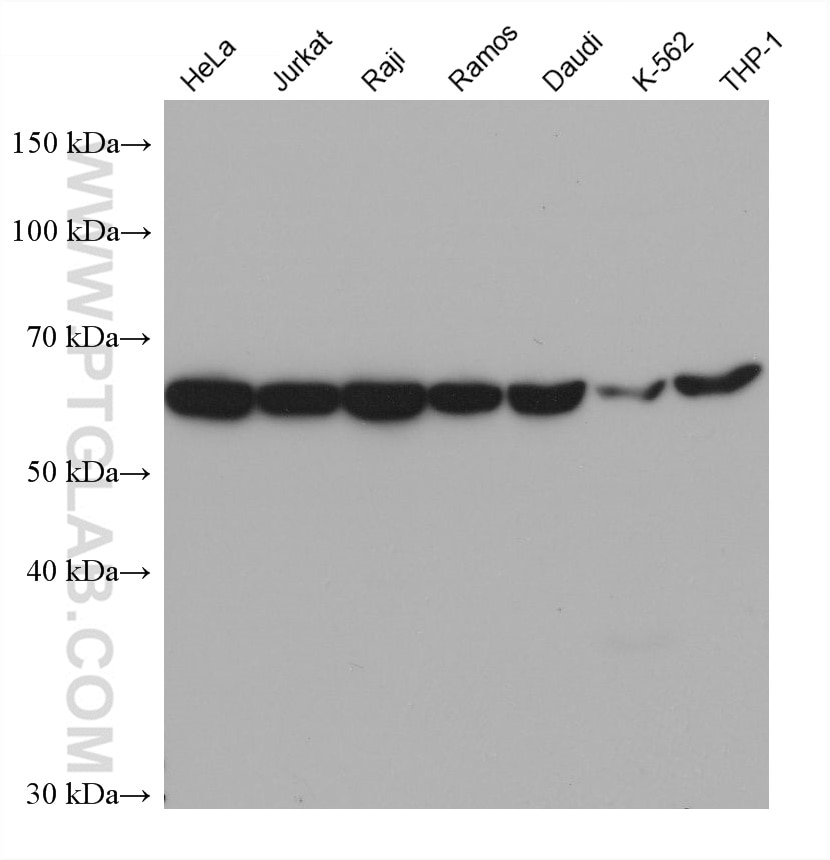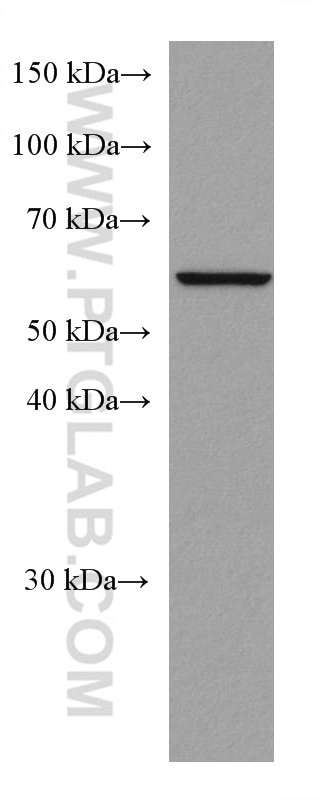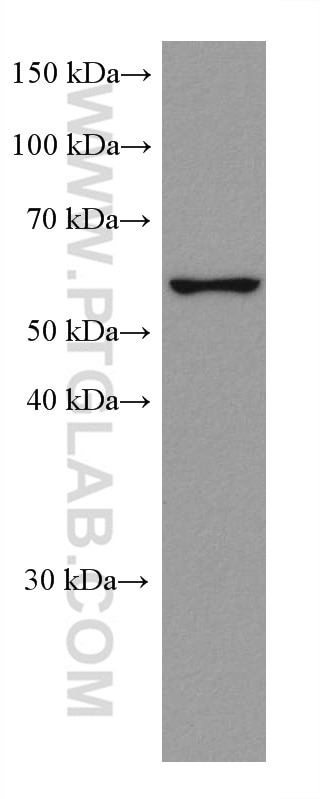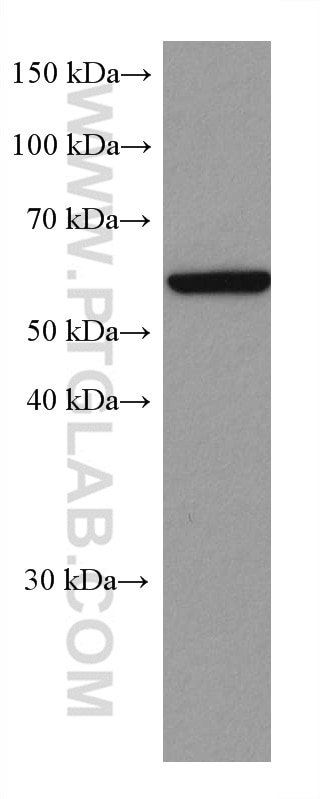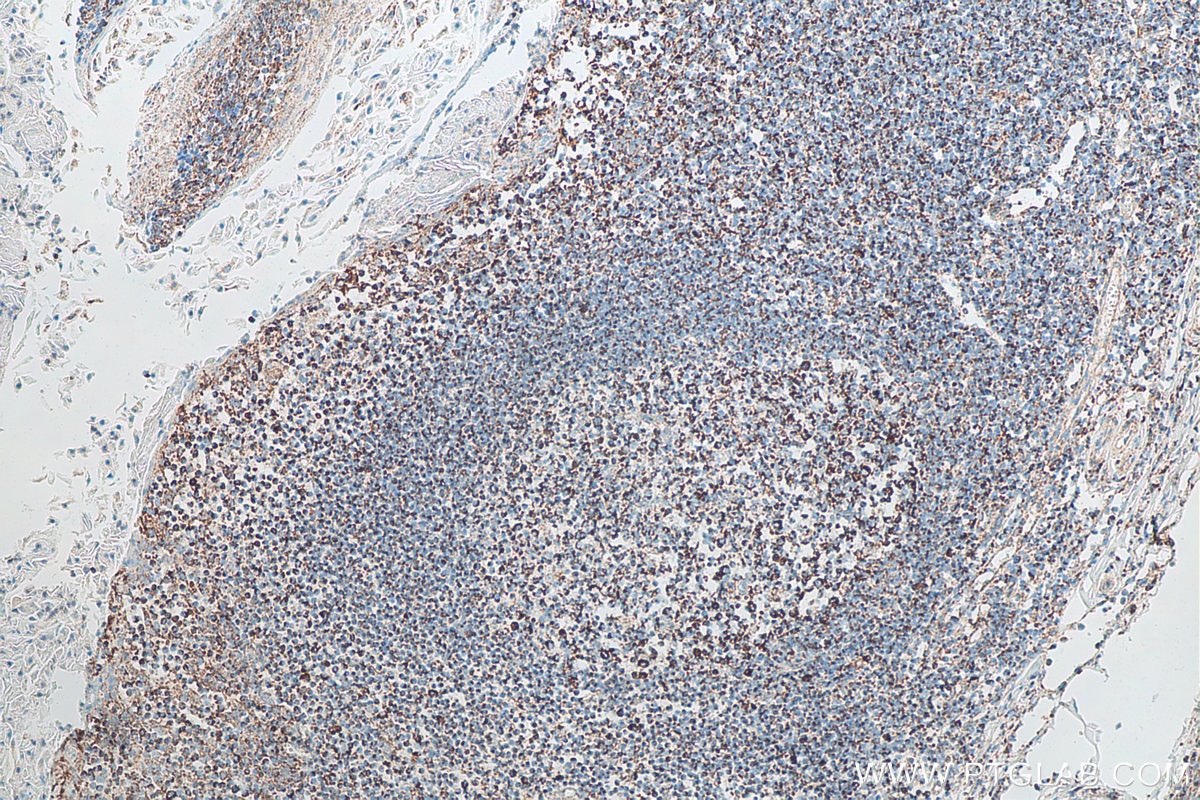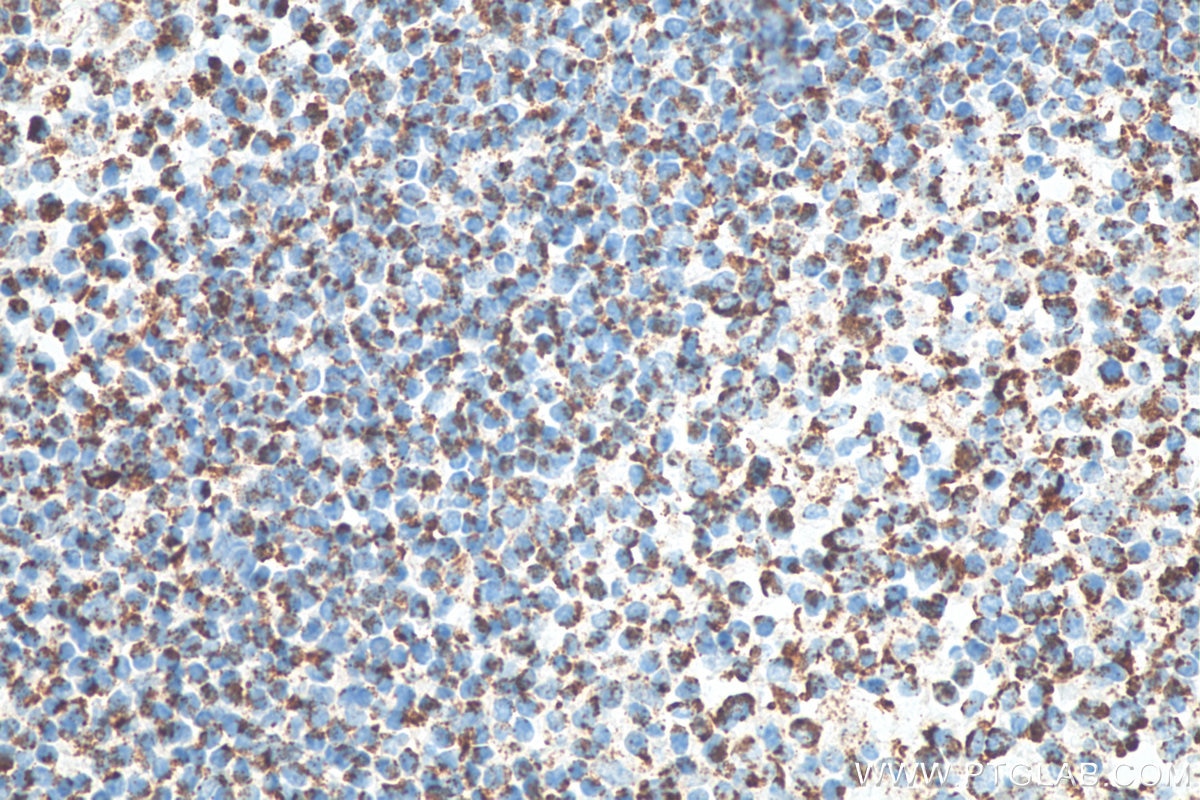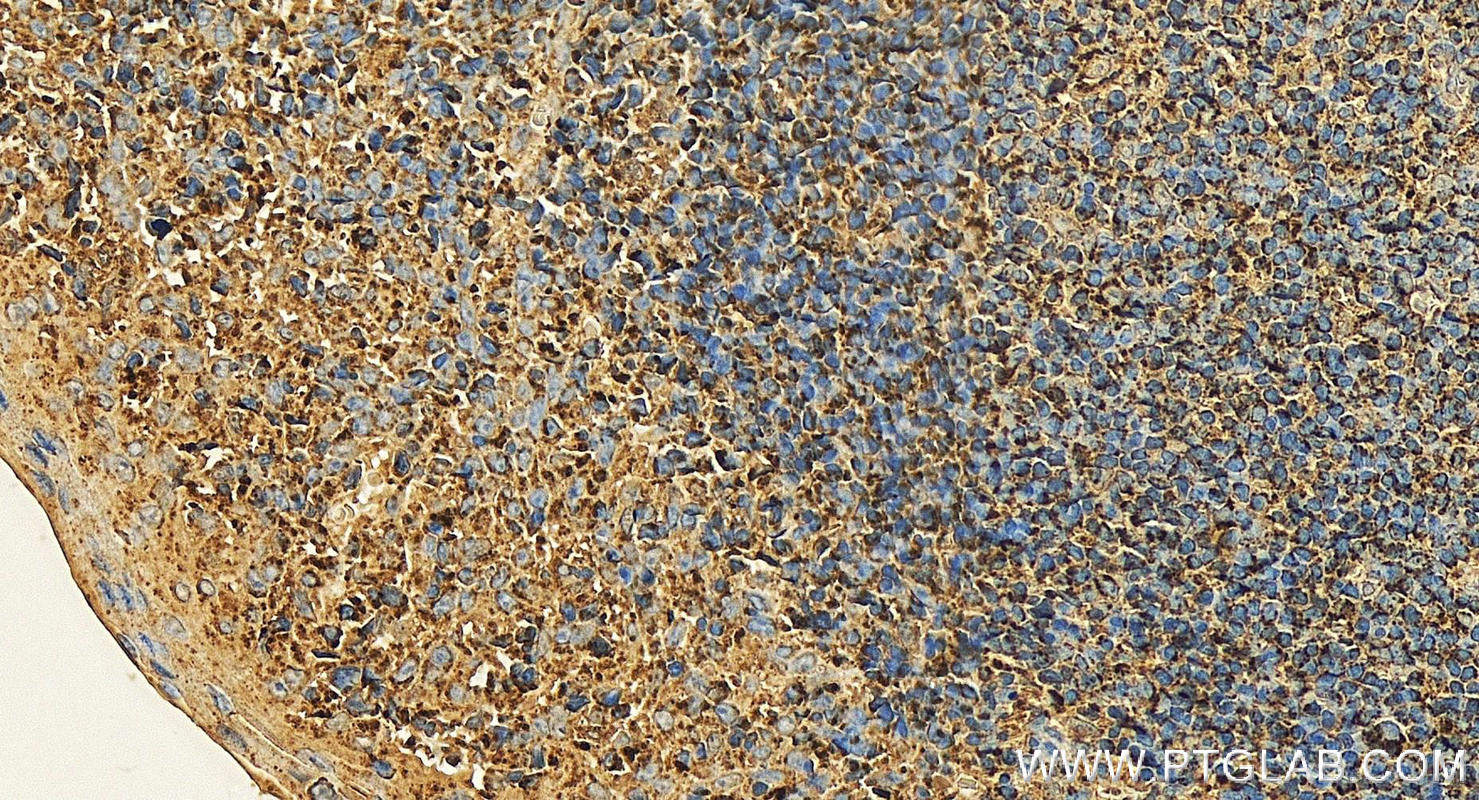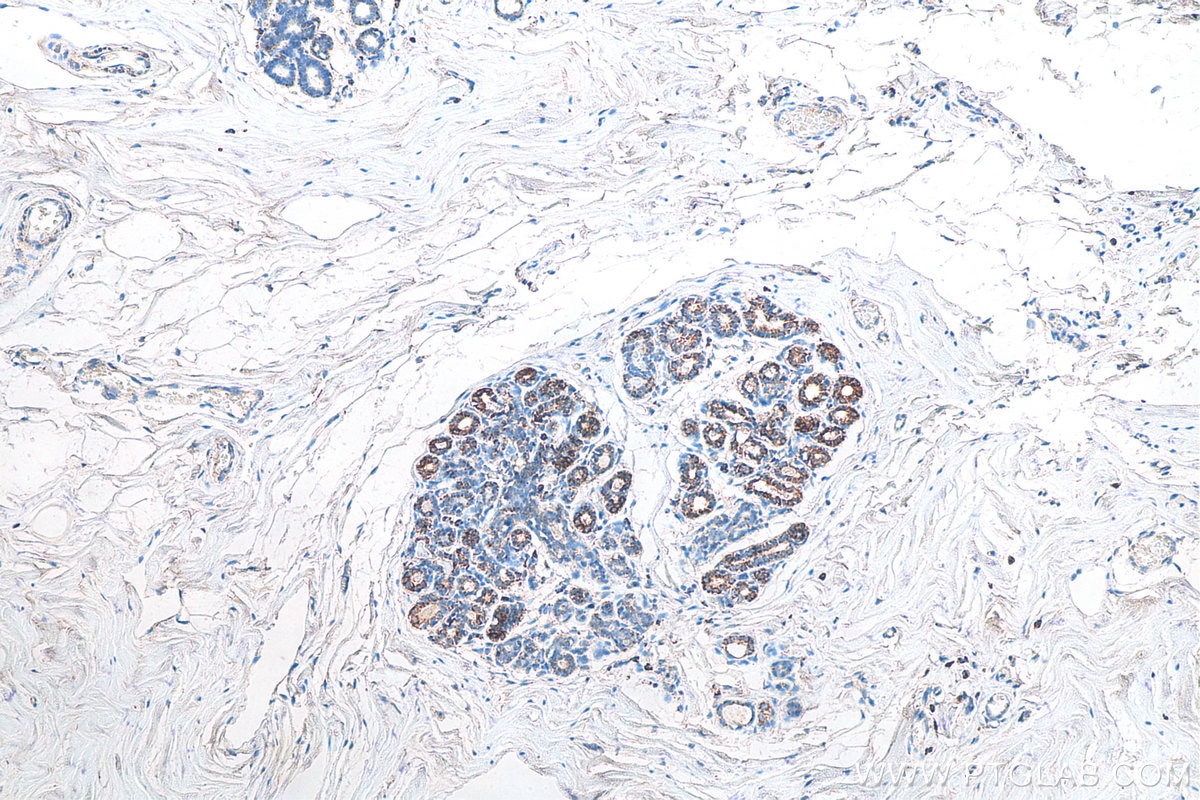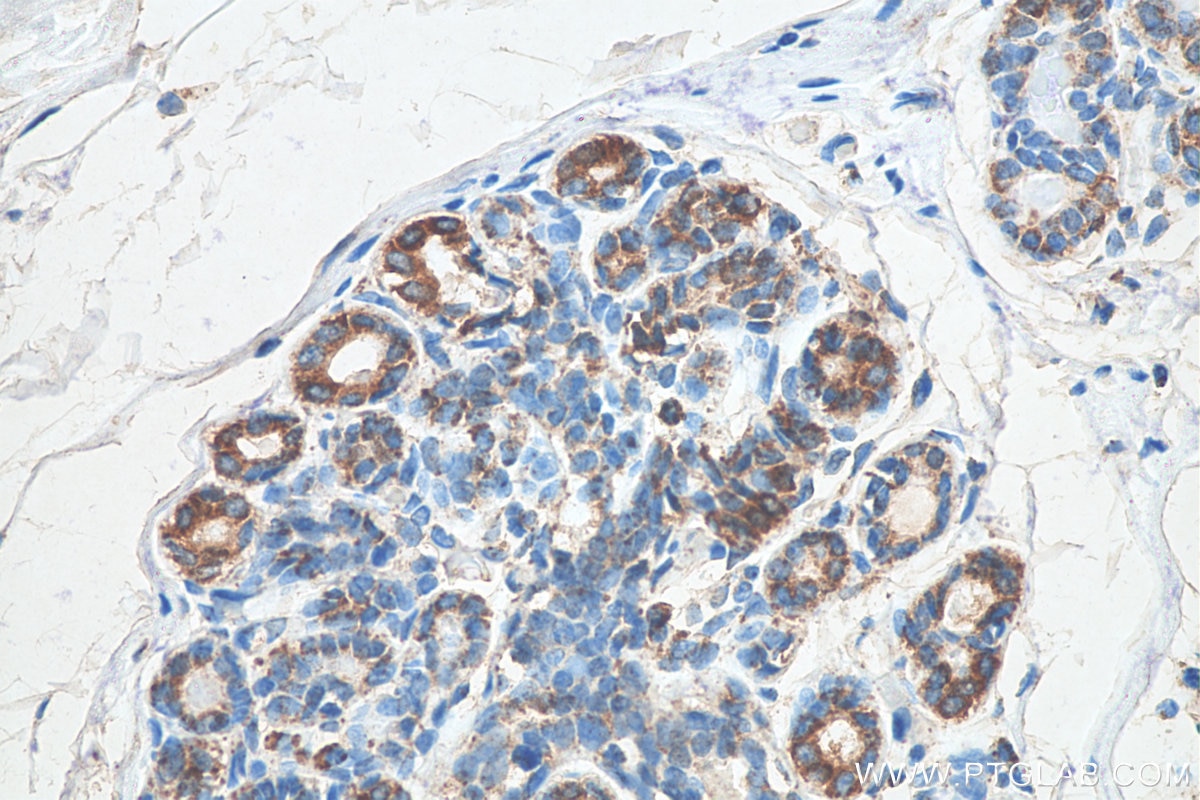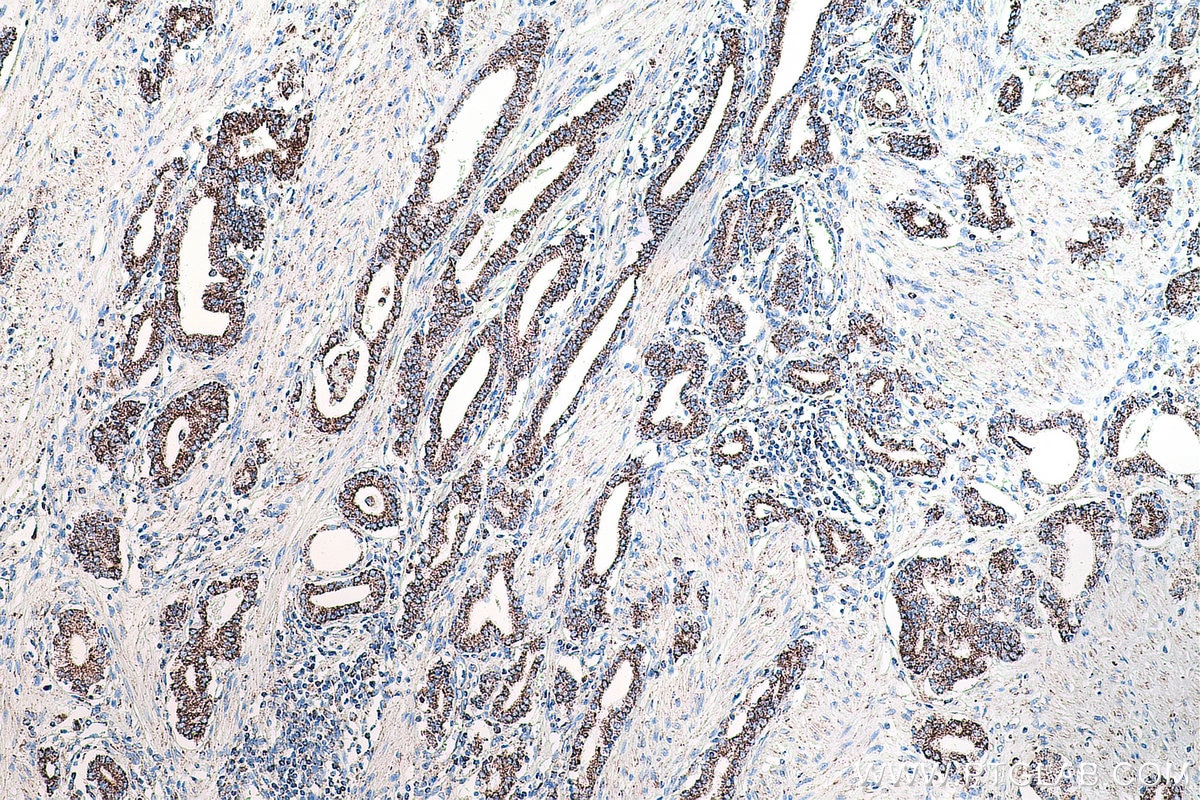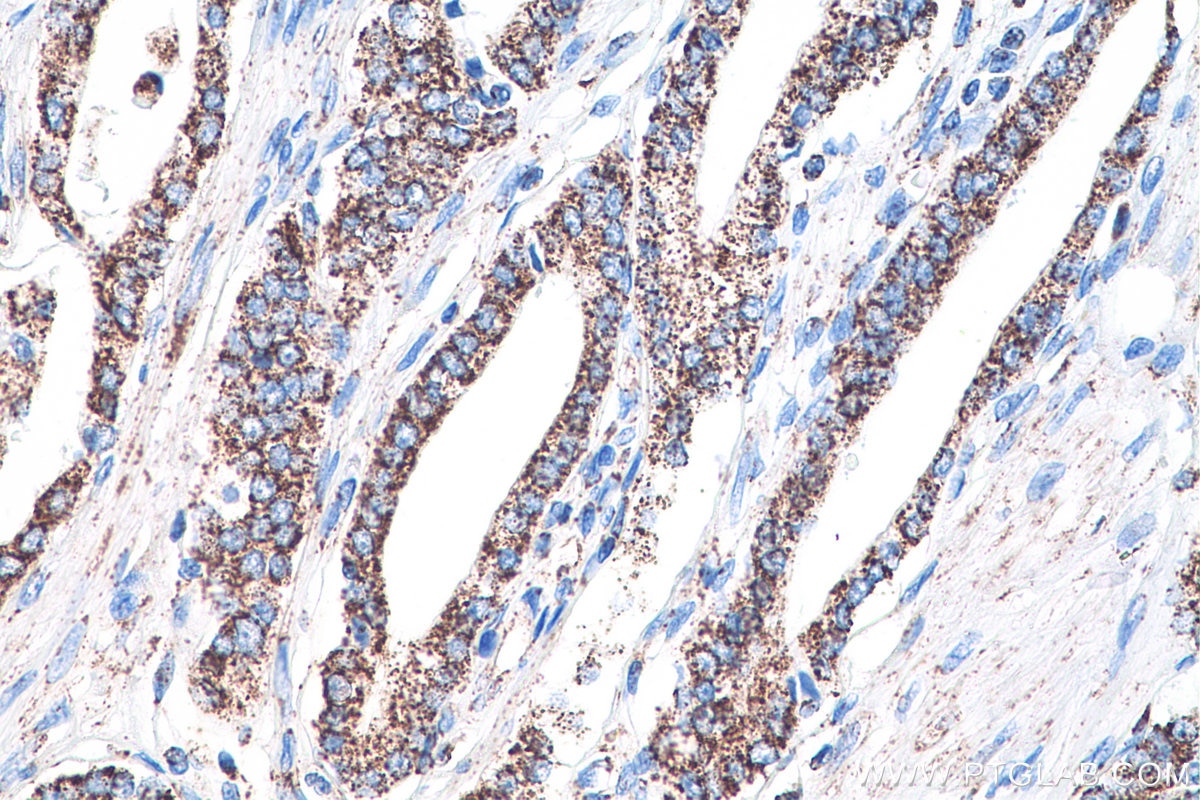Tested Applications
| Positive WB detected in | HeLa cells, THP-1 cells, Ramos cells, Daudi cells, Jurkat cells, Raji cells, K-562 cells |
| Positive IHC detected in | human tonsillitis tissue, human breast cancer tissue, human prostate cancer tissue Note: suggested antigen retrieval with TE buffer pH 9.0; (*) Alternatively, antigen retrieval may be performed with citrate buffer pH 6.0 |
Mouse monoclonal antibodies of IgM isotype can be detected with "anti-mouse IgG (H+L)" secondary antibodies.
Recommended dilution
| Application | Dilution |
|---|---|
| Western Blot (WB) | WB : 1:1000-1:4000 |
| Immunohistochemistry (IHC) | IHC : 1:300-1:1200 |
| It is recommended that this reagent should be titrated in each testing system to obtain optimal results. | |
| Sample-dependent, Check data in validation data gallery. | |
Published Applications
| KD/KO | See 8 publications below |
| WB | See 42 publications below |
| IHC | See 10 publications below |
| IF | See 13 publications below |
| FC | See 1 publications below |
| CoIP | See 2 publications below |
Product Information
60042-1-Ig targets CXCR4 in WB, IHC, IF, CoIP, ELISA applications and shows reactivity with human samples.
| Tested Reactivity | human |
| Cited Reactivity | human, mouse |
| Host / Isotype | Mouse / IgM |
| Class | Monoclonal |
| Type | Antibody |
| Immunogen | CXCR4 fusion protein Ag1528 Predict reactive species |
| Full Name | chemokine (C-X-C motif) receptor 4 |
| Calculated Molecular Weight | 352 aa, 40 kDa |
| Observed Molecular Weight | 60~70 kDa |
| GenBank Accession Number | BC020968 |
| Gene Symbol | CXCR4 |
| Gene ID (NCBI) | 7852 |
| RRID | AB_2091809 |
| Conjugate | Unconjugated |
| Form | Liquid |
| Purification Method | Caprylic acid/ammonium sulfate precipitation |
| UNIPROT ID | P61073 |
| Storage Buffer | PBS with 0.1% sodium azide and 50% glycerol pH 7.3. |
| Storage Conditions | Store at -20°C. Stable for one year after shipment. Aliquoting is unnecessary for -20oC storage. 20ul sizes contain 0.1% BSA. |
Background Information
C-X-C chemokine receptor type 4 (CXCR4) is a widely expressed G protein-coupled seven-transmembrane receptor. CXCL12/SDF-1 is the biological ligand for CXCR4. The binding of CXCL12 to CXCR4 induces intracellular signaling through several divergent pathways initiating signals related to chemotaxis, cell survival and/or proliferation, increase in intracellular calcium, and gene transcription (PMID: 20484021). CXCR4 also functions as a coreceptor for HIV-1 entry (PMID: 9427609). CXCR4 has a calculated molecular weight of 40 kDa. In addition to the predicted species of 45-47 kDa for glycosylated CXCR4 monomers, due to ubiquitination, dimeration, and different degrees of glycosylation, additional species can also exist and have been reported in some research, including 67 kDa (PMID: 23917520), 55, 67, 87 kDa (PMID: 20028517), 80 kDa (PMID: 10506573), 47, 50, 62, and 98 kDa (PMID: 16204649).
Protocols
| Product Specific Protocols | |
|---|---|
| WB protocol for CXCR4 antibody 60042-1-Ig | Download protocol |
| IHC protocol for CXCR4 antibody 60042-1-Ig | Download protocol |
| Standard Protocols | |
|---|---|
| Click here to view our Standard Protocols |
Publications
| Species | Application | Title |
|---|---|---|
Adv Sci (Weinh) Mesenchymal Stem Cell Membrane-Camouflaged Liposomes for Biomimetic Delivery of Cyclosporine A for Hepatic Ischemia-Reperfusion Injury Prevention | ||
Nat Commun HIF-1α-PDK1 axis-induced active glycolysis plays an essential role in macrophage migratory capacity. | ||
J Exp Med CXCR4 regulates Plasmodium development in mouse and human hepatocytes.
| ||
Cancer Lett YTHDF1 promotes the osteolytic bone metastasis of breast cancer via inducing EZH2 and CDH11 translation | ||
Nanoscale Mitomycin C-treated human-induced pluripotent stem cells as a safe delivery system of gold nanorods for targeted photothermal therapy of gastric cancer |
